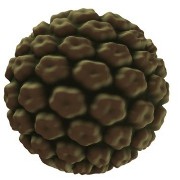 Photo: Getty Images
Photo: Getty Images
All warts, including plantar warts, are caused by strains of the human papillomavirus (HPV). Plantar warts are small non-cancerous growths on the soles of the feet, usually occurring on the heel or ball of the foot. If they grow deeper into the skin layer, they can cause pain from the pressure of walking. Teens and children seem to be the most susceptible to developing plantar warts as well as those with weakened immune systems.
At first, plantar warts can be mistaken for calluses because they appear hardened and flat. The clue is that there is tenderness felt with walking and that the center of a plantar wart typically has a one or more blackened pinpoint spots, which are from clotted blood inside the wart. Sometimes multiple plantar warts can form and grow together called mosaic warts.
How to treat:
Before treating a plantar wart, a dermatologist should evaluate the area to confirm that the tender spots are in fact plantar warts. The dermatologist will determine if the area is suspicious for skin cancer in which case a scraping would be sent and examined under a microscope. Additionally, if you have circulatory problems or diabetes, a doctor should monitor the treatment of any lesions to the foot to avoid developing a more serious infection.
Your doctor may suggest you try a home therapy first, especially if the person being treated is a child as these treatments will be the least invasive or painful. Over-the-counter products that contain salicylic acid are worth a try before moving on to more involved treatments below.
• Freezing: a doctor uses liquid nitrogen from a spray or cotton tip applicator to “freeze” the wart. This treatment is a bit painful so may not be appropriate for young children and often needs to be repeated.
• Acids: salicylic acid may be used alone or combined with cantharidin, a special solution derived from the blister beetle. Upton's paste is another acid mixture that is applied to the wart and then covered with tape. The doctor will remove the dead skin around the wart about a week later.
• Lasers: are another way to treat plantar warts but the treatments are expensive, painful and multiple sessions may be needed.
• Immune system stimulators- a doctor can inject the wart with a substance that stimulates your own immune system to fight the virus in the wart. Interferon is one type of medication used. There is also an immune stimulating cream called Imiquimod (Aldara) that has been approved for use with genital and anal warts by the United States Food and Drug Administration that can also be used on plantar warts.
• Virus destroyers- certain cancer medications can be used to directly kill the virus. Efudex (5-fluorouracil) is an ointment that can destroy the virus. Bleomycin, used only in severe cases, is injected directly into the wart to kill the virus but is not to be used on women who are breastfeeding or pregnant.
Prevention:
HPV is spread person-to-person so good hand washing overall is important for prevention. Avoid walking barefoot in public showers, steam rooms or public swimming pools and keeping your feet clean and dry will help avoid exposure. Try not to scratch existing warts, which can spread the virus, especially if there are small cuts and scratches on the surrounding skin.
sources:
http://www.cnn.com/HEALTH/library/plantar-warts/DS00509.html
http://www.emedicinehealth.com/plantar_warts/article_em.htm
Michele is an R.N. freelance writer with a special interest in woman’s health care and quality of care issues. Other articles by Michele are at www.helium.com/users/487540/show_articles
Edited by Alison Stanton





Add a CommentComments
There are no comments yet. Be the first one and get the conversation started!